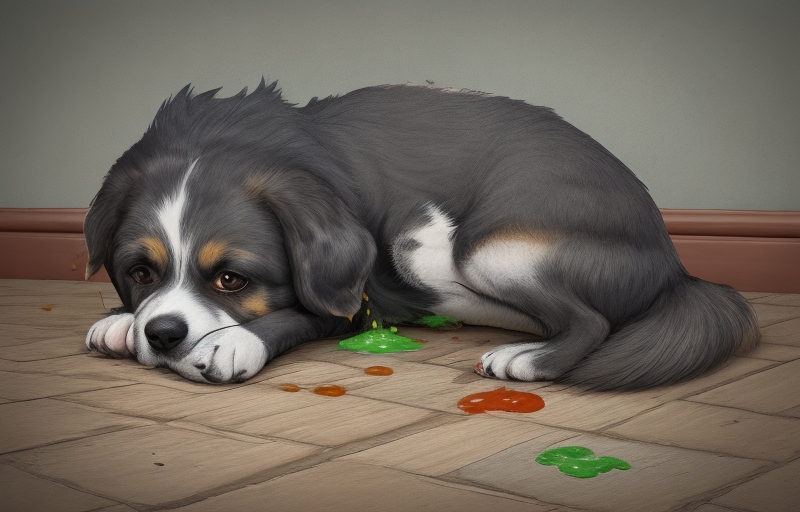Explore the potential causes of insufficient urine production in dogs, from common issues like dehydration and urinary tract infections to more serious conditions such as kidney dysfunction and diabetes. Understand the symptoms, seek timely veterinary care, and learn how to support your dog’s urinary health.
Causes of Insufficient Urine Production in Dogs:
Insufficient urine production in dogs can be a concerning issue that may indicate an underlying health problem. Proper urine production is vital for eliminating waste and maintaining overall health. Various factors can contribute to reduced urine output in dogs, ranging from dehydration to serious medical conditions. In this article, we explore the potential causes in detail to help pet owners understand and address this issue promptly.
Read Also: Understanding Lipomas in Dogs
1. Dehydration:

One of the most common Causes of Insufficient Urine Production in Dogs is dehydration. Inadequate water intake, especially during hot weather or illness, can lead to decreased urine output. Dehydration can be a result of various factors, including a lack of access to clean water or an underlying medical condition.
2. Kidney Dysfunction:
The kidneys play a crucial role in urine production. If the kidneys are not functioning properly due to infections, toxins, or other diseases, it can lead to a decrease in urine production. Chronic kidney disease is a common culprit, often accompanied by other symptoms such as increased thirst and weight loss.
3. Urinary Tract Infections (UTIs):
Infections in the urinary tract can cause discomfort and reduce urine production in dogs. UTIs are often characterized by symptoms like frequent urination, straining to urinate, and blood in the urine. Prompt veterinary attention is crucial to prevent the infection from spreading to the kidneys.
4. Medications and Toxins:

Certain medications and toxins can affect kidney function and, consequently, urine production. Nonsteroidal anti-inflammatory drugs (NSAIDs), some antibiotics, and toxic substances like antifreeze are known to impact renal health. Careful monitoring of a dog’s medication intake and environment is essential.
5. Diabetes:
Diabetes mellitus can lead to an imbalance in fluid regulation, causing increased thirst and urine production initially. However, if diabetes is left untreated, it can progress to a state where the dog’s body can no longer adequately concentrate urine, resulting in increased water intake but reduced urine output.
Symptoms of Insufficient Urine Production in Dogs: Recognizing the Signs
Insufficient urine production in dogs can be indicative of underlying health issues that require prompt attention. Monitoring your dog’s urinary habits and recognizing potential symptoms is crucial for early detection and intervention. Here are detailed symptoms to watch for:
1. Decreased Frequency of Urination:
A noticeable reduction in the number of times your dog urinates in a day may be a sign of insufficient urine production. If your dog typically urinates several times daily and you observe a sudden decrease, it warrants investigation.
2. Straining to Urinate:
Difficulty or straining during urination can be a red flag. If your dog appears to be in discomfort, takes a prolonged time to urinate, or repeatedly tries without success, it could indicate a problem with urine production or urinary tract health.
3. Changes in Urine Color:
Observing changes in the color of your dog’s urine is essential. Darker urine may suggest concentrated urine due to dehydration, while bloody or discolored urine can be indicative of various issues, including infections or kidney problems.
4. Increased Thirst:
While seemingly contradictory, insufficient urine production can lead to increased thirst in dogs. The body attempts to compensate for decreased urine output by promoting water intake. If you notice your dog drinking more water than usual, it may be a response to an underlying issue.
5. Lethargy and Weakness:

Reduced urine production can be associated with overall weakness and lethargy in dogs. If your pet seems unusually tired, lacks energy, or shows signs of fatigue, it could be linked to an underlying problem affecting urinary function.
6. Changes in Appetite and Weight Loss:
A decrease in appetite, coupled with unexplained weight loss, may be indicative of systemic issues affecting multiple bodily functions, including urinary health. These symptoms should prompt a thorough examination by a veterinarian.
7. Vomiting and Diarrhea:

Gastrointestinal symptoms, such as vomiting and diarrhea, can sometimes be linked to underlying issues affecting the kidneys or urinary tract. If your dog exhibits these symptoms alongside changes in urine production, it necessitates a comprehensive veterinary assessment.
8. Signs of Discomfort or Pain:
Expressed discomfort, pain, or restlessness during urination or when touched around the abdominal area may suggest urinary tract problems. Dogs may vocalize, whine, or exhibit behavioral changes when experiencing discomfort.
9. Foul Odor in Urine:
An unusually strong or foul odor in your dog’s urine may indicate the presence of infection or other urinary tract issues. Changes in odor, especially if accompanied by other symptoms, should be investigated promptly.
10. Pawing or Licking Genital Area:
Excessive licking, pawing, or attention to the genital area can be a sign of discomfort related to urinary issues. Persistent behaviors of this nature warrant a closer look by a veterinarian.
Conclusion
If you notice any of these symptoms in your dog, it is crucial to consult with a veterinarian promptly. Early diagnosis and intervention can help address the underlying causes of insufficient urine production and improve your dog’s overall health and well-being.
FAQs:
Q1: What are the signs of dehydration in dogs?
Common signs of dehydration in dogs include sunken eyes, dry gums, lethargy, and excessive panting. Monitoring water intake and seeking veterinary attention promptly is crucial.
Q2: Can insufficient urine production be a sign of a serious illness?
Yes, insufficient urine production can indicate underlying health issues such as kidney disease, diabetes, or urinary tract infections. It’s essential to consult a veterinarian for a proper diagnosis and treatment.
Q3: How can I encourage my dog to drink more water?
Ensure access to fresh, clean water at all times. You can also try adding water to your dog’s food or using wet food. If concerns persist, consult your vet to rule out any health issues.

2 thoughts on “Causes of Insufficient Urine Production in Dogs: Understanding the Symptoms”